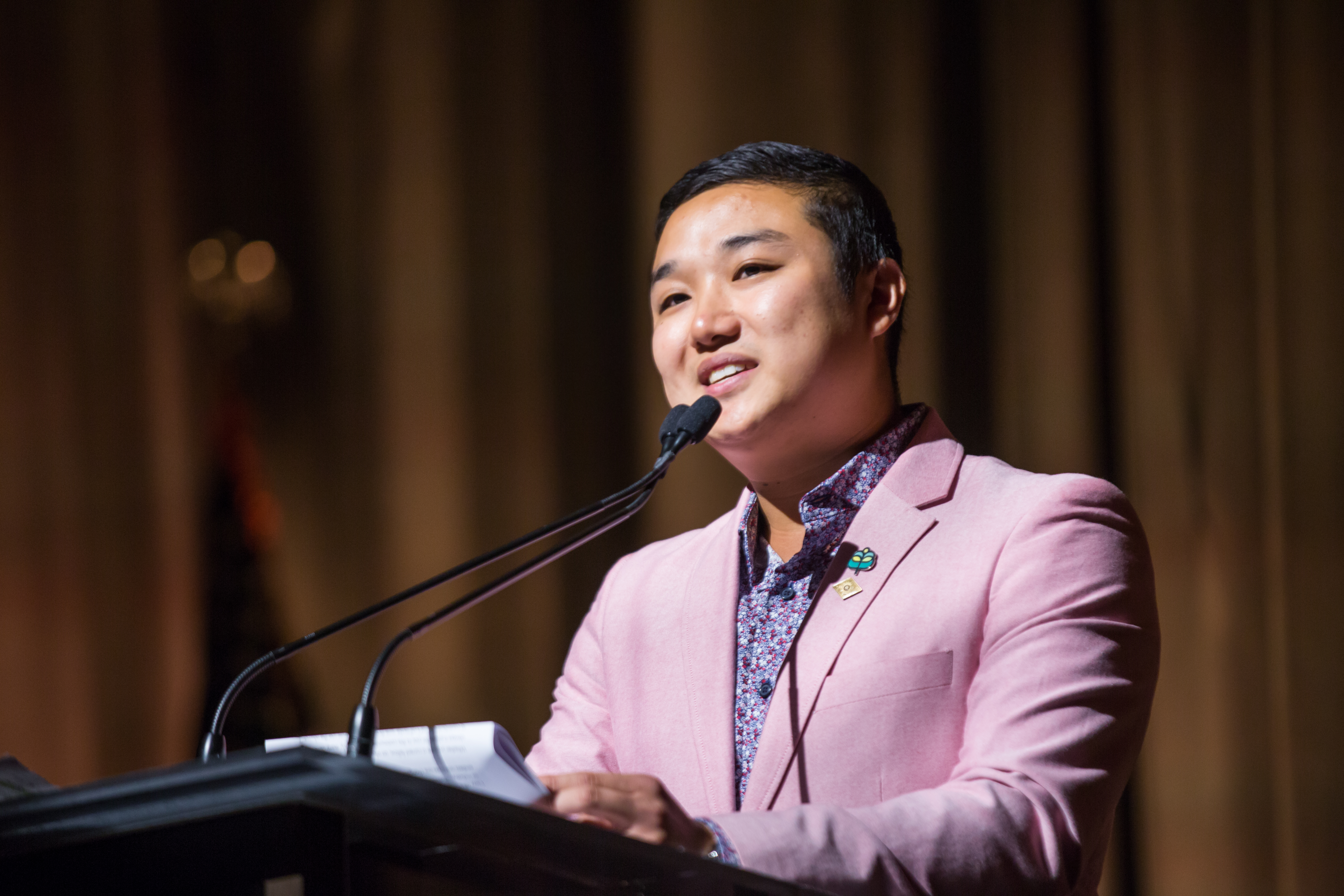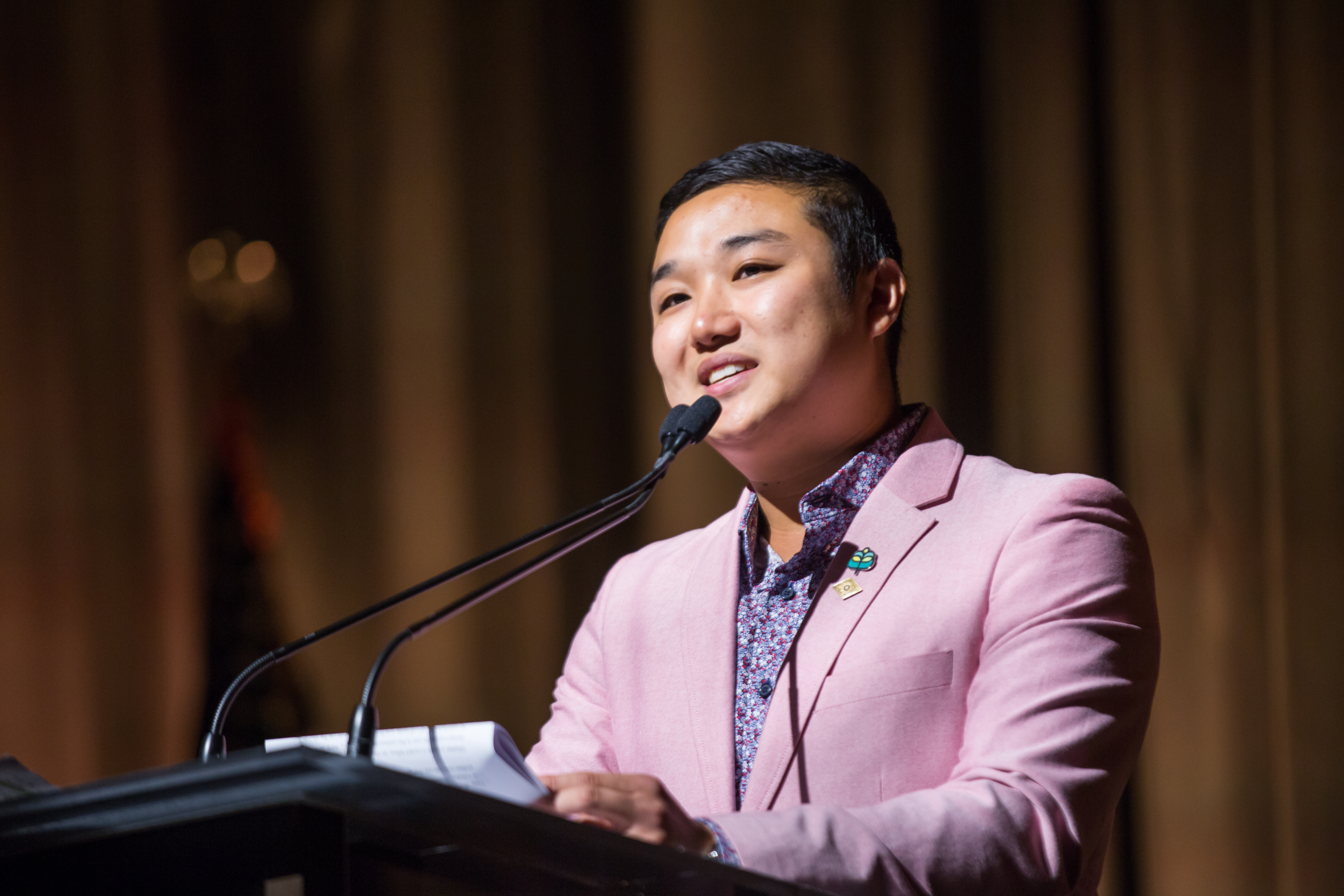Gold House, the largest nonprofit collective of Asian cultural leaders that accelerates the inclusive representation and empowerment of Asians, announces its third annual A100 List to celebrate Asians and Asian American & Pacific Islanders (AAPI) and their transformative contributions to society. The seminal 2020 A100 commences Asian Pacific American Heritage Month by spotlighting the 100 most esteemed and impactful Asians in entertainment and media, fashion and lifestyle, technology, business, and social activism. Meet this year’s Honorees at A100List.com.
When you have the opportunity to ask some of the most interesting people in the world about their lives, sometimes the most fascinating answers come from the simplest questions. The Thrive Questionnaire is an ongoing series that gives an intimate look inside the lives of some of the world’s most successful people. Below, Leo Wong, director of the A100 List at Gold House, opens up about what inspires him, what makes him optimistic, and the powerful lesson he learned by fully embracing his Asian American identity.
Thrive Global: Tell us about your relationship with your phone. Does it sleep with you?
Leo Wong: Like many others, it’s definitely a love/hate relationship. I love it because I’m able to access so much in the palm of my hand, but I hate it because I admittedly spend too much time getting lost in social media. I am proud that I’ve never fallen asleep with my phone, but it is usually just a short reach away.
TG: How do you deal with email?
LW: I’m a little OCD when it comes to notifications so I can’t leave anything unread. I am the type of person that opens an email right when I see it and either save it for later, delete it, or if it’s spammy, unsubscribe right away.
TG: You unexpectedly find 15 minutes in your day, what do you do with it?
LW: Like many millennials, I’ll check my phone and catch up on social media and I’ll definitely grab a snack, because food brings me happiness and energy!
TG: When was the last time you felt burned out and why?
LW: It was definitely during one of my former roles when I worked in the advertising industry. The work can certainly be fun and rewarding, but the combination of tight deadlines, poor communication, lack of leadership equated to long nights and a culture lacking support. As much as I tried to keep up, I burnt out.
TG: Share a quote that you love and that gives you strength or peace.
LW: “Embrace discomfort, because out of discomfort comes greatness.” —Cindy Gallop, Former Chairman & President of ad agency, BBH
TG: How do you prioritize when you have an overwhelming amount to do?
LW: As you may be able to tell by now, I am very type A and deadline driven. They’re great qualities in most situations, but I tend to stress myself out over things that aren’t pertinent. I now make sure to remind myself that there will always be something not checked off on the to-do list, so prioritize what really needs to get done at that moment in time. The rest can wait and be revisited tomorrow.
TG: What advice would you give your younger self about reducing stress?
LW: PROTECT TIME FOR YOURSELF! Sometimes we all get so caught up in our jobs that we lose sight of how much time we spend at the office and on email. Make sure to block time out for yourself and do something completely not work related. For me, that ranges from grabbing a snack (probably hot cheetos), jamming out to some of my favorite EDM tracks, or recently, watching John Krasinski’s latest episode of “Some Good News.”
TG: What’s your personal warning sign that you’re depleted?
LW: I’m a huge foodie so definitely when I skip meals or have no appetite. I’m always hungry and searching for the next yummy bite!
TG: When you notice you’re getting too stressed, what do you do to course correct?
LW: Take a moment to pause & reflect to recognize the things I can and can’t control. Then, I refocus and hone in on a plan of action. In addition, I often seek counsel and support from my peers, mentors, and family as I know that the situation that’s stressing me out is likely not unique.
TG: What brings you optimism?
LW: Championing the A100 and Asian American & Pacific Islander (AAPI) community is more important now than ever, as anti-Asian sentiment has surged in the wake of the COVID-19 pandemic. There have been over 1,135 reports of hate incidents from AAPIs in just two weeks and Crisis Text Line reported that AAPIs, which represent about 6% of the US population, accounted for 16% of all crisis texts related to coronavirus.
In the wake of the hate, it has however been amazing to see the AAPI community come together to support each other and those around them by sharing their resources and love. Personally, it has been overwhelming to see the cross-cultural support when we unveiled this year’s A100 List. Seeing all of this gives me hope that we will come out of COVID-19 a stronger community than we have ever been.
TG: Tell us about a small change you have made in your life to improve the way you connect with others. What did you do, how long did it take until it became effective, and how you sustain this habit?
LW: Growing up as an only child, my relationships with my family and friends have always been very important to me. We often forget the power of hearing someone’s voice, so when I went off to college, I promised myself to call my parents and grandparents at least once a week (usually on Sundays) to check in on them and to update them on what’s going on in my life and vice versa. It may seem like a small gesture, but it helped me maintain a feeling of closeness, even when I physically am not with them. I am proud to say that I still do this today and has become a natural part of my weekly routine.
TG: What was the biggest turning point in your life?
LW: I grew up in East L.A. in a primarily Asian and Latino community. I moved to the east coast and attended Syracuse University where for the first time in my life, I felt like “the other.” I, fortunately, was never subject to any racial slurs, but it was a feeling that I didn’t really know what to do with.
Eventually, I applied for and was accepted into programs that were created by the advertising industry to champion multicultural talent and provide resources for them to succeed like the 4A’s Multicultural Advertising Intern Program (MAIP), the AAF’s Most Promising Multicultural Student Program (MPMS), and ADCOLOR Futures. It was at this point that I realized that my cultural background was something to be proud of and shared. Not tucked away and dismissed.
From that point on, I have fully embraced my Asian American identity by sharing my experiences openly and becoming an advocate for underrepresented groups. I have also been fortunate to join trailblazing organizations like Gold House and Asians for ADCOLOR who aim to support, amplify, and unify the AAPI community and beyond.
So my advice: embrace all aspects of your identity as superpowers! Those around you will greatly benefit when you do.


